
Find Help
More Items From Ergsy search
-

Can lifestyle changes help manage Huntington's disease?
Relevance: 100%
-
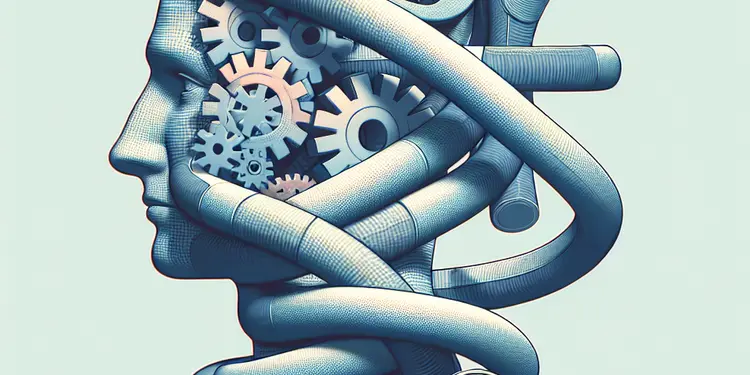
Is Huntington's disease fatal?
Relevance: 73%
-

What is Huntington's disease?
Relevance: 72%
-

What causes Huntington's disease?
Relevance: 70%
-

Can Huntington's disease be cured?
Relevance: 69%
-
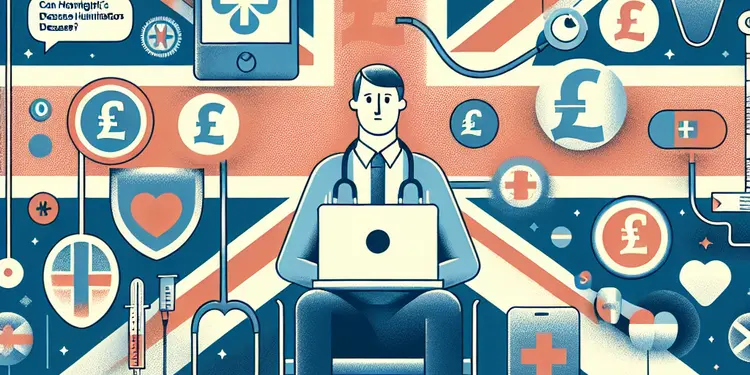
Can Huntington's disease be prevented?
Relevance: 69%
-

What are the symptoms of Huntington's disease?
Relevance: 67%
-

How is Huntington's disease diagnosed?
Relevance: 66%
-
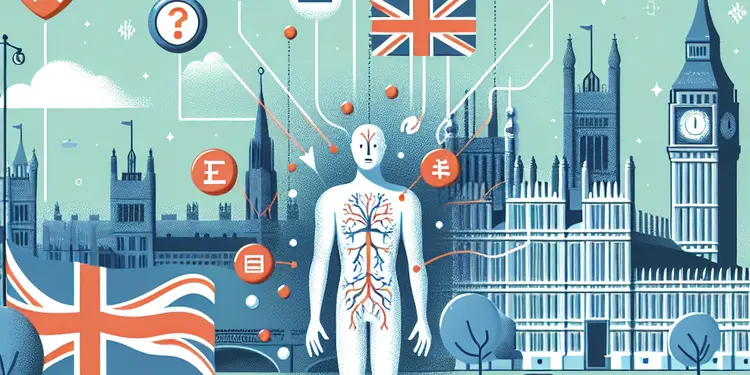
How does Huntington's disease affect emotions?
Relevance: 65%
-

What research is being done on Huntington's disease?
Relevance: 65%
-

How does Huntington's disease affect cognition?
Relevance: 64%
-

How does Huntington's disease affect movement?
Relevance: 64%
-

What is the role of genetic testing in Huntington's disease?
Relevance: 63%
-

At what age do symptoms of Huntington's disease typically appear?
Relevance: 63%
-
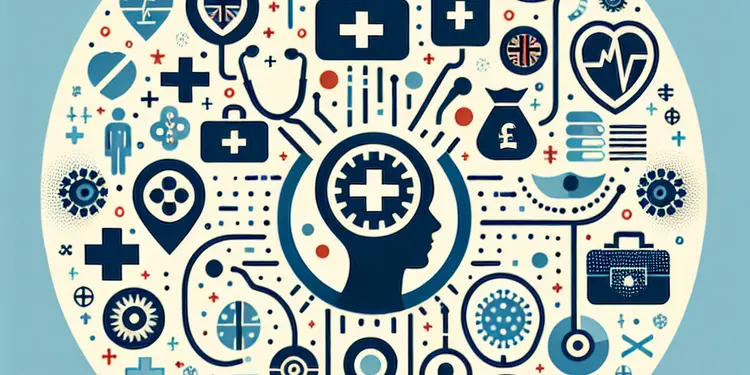
What kinds of specialists are involved in treating Huntington's disease?
Relevance: 60%
-
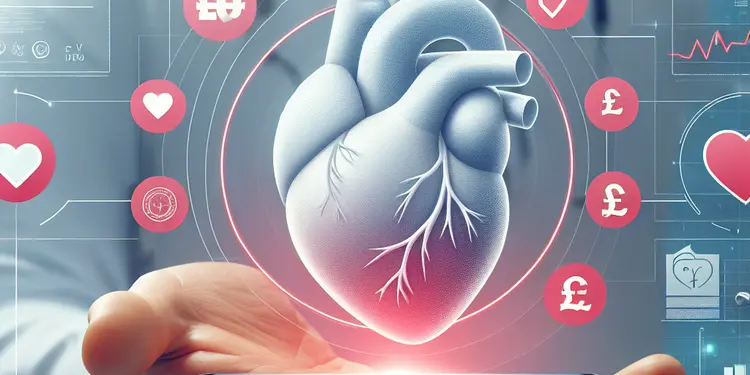
Can lifestyle changes reduce the need for medication for heart disease prevention?
Relevance: 50%
-

Can lifestyle changes help manage ADHD?
Relevance: 50%
-
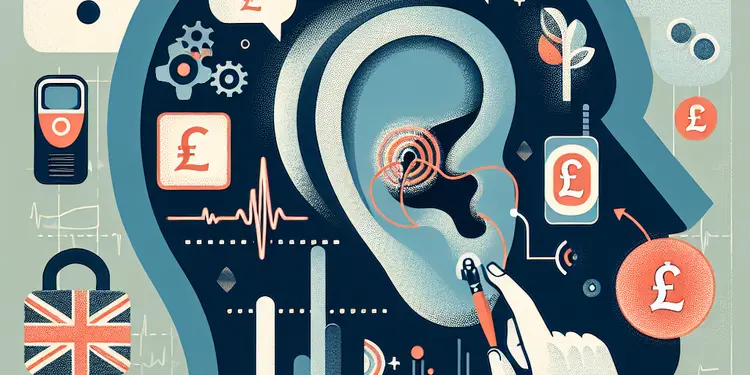
Can lifestyle changes help manage tinnitus?
Relevance: 50%
-

Can lifestyle changes impact motor neurone disease progression?
Relevance: 49%
-

What is Juvenile Huntington's disease?
Relevance: 48%
-

What role do lifestyle changes play in managing psoriasis?
Relevance: 47%
-

Are there treatments available for Huntington's disease?
Relevance: 47%
-
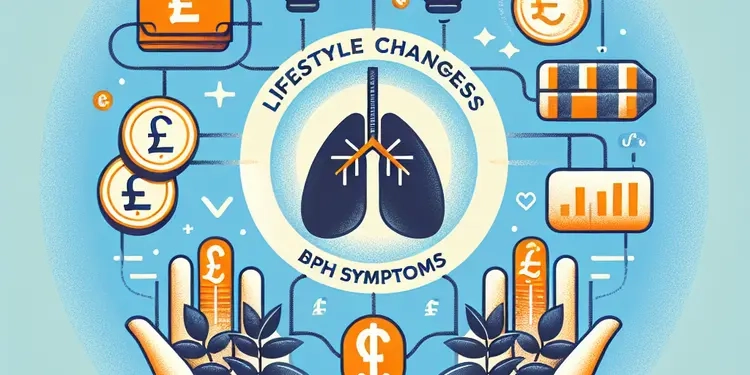
Can lifestyle changes help manage BPH symptoms?
Relevance: 46%
-

Can lifestyle changes help manage Carpal Tunnel Syndrome?
Relevance: 46%
-

How is Huntington's disease inherited?
Relevance: 46%
-

Can lifestyle changes help manage pain and fever during pregnancy?
Relevance: 43%
-
Can lifestyle changes help manage mitochondrial disease?
Relevance: 43%
-

What dietary changes can help manage Crohn's disease?
Relevance: 43%
-

Can chronic fatigue syndrome be managed with lifestyle changes?
Relevance: 41%
-
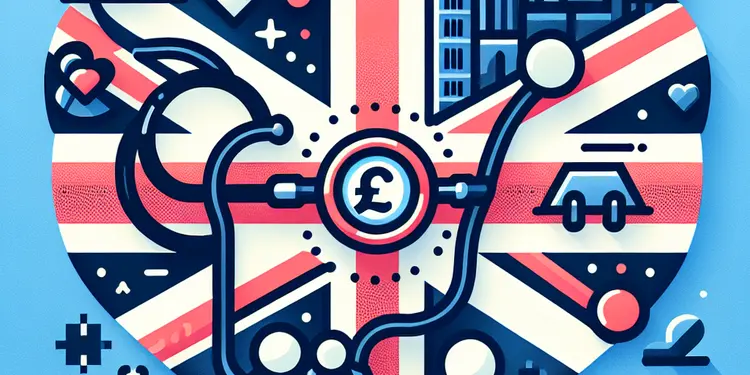
What support is available for families affected by Huntington's disease?
Relevance: 40%
-

What lifestyle changes can help manage thrombosis risk?
Relevance: 40%
-

What lifestyle changes can help manage sleep apnea?
Relevance: 39%
-

Can lifestyle changes help with menopause masking?
Relevance: 39%
-

What lifestyle changes can help manage heart failure?
Relevance: 39%
-

Can lifestyle changes help with postnatal depression?
Relevance: 38%
-

Are there lifestyle changes recommended with Baxdrostat?
Relevance: 38%
-

Can lifestyle changes help with health-related anxiety?
Relevance: 38%
-
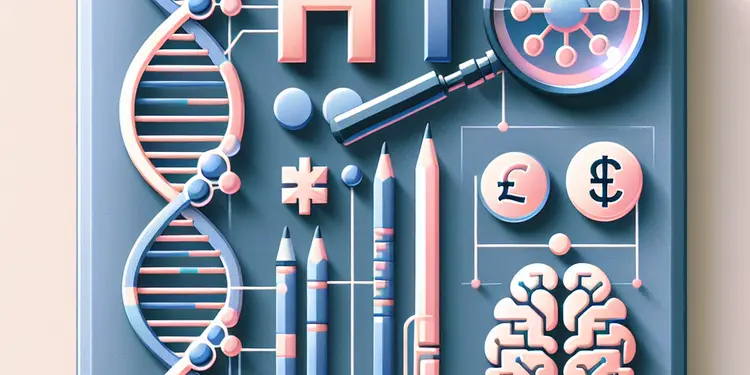
What role does the HTT gene play in Huntington's disease?
Relevance: 37%
-

Do lifestyle changes need to accompany Ozempic for weight loss?
Relevance: 37%
-

Are there any lifestyle changes that can help with hypotony?
Relevance: 37%
Understanding Huntington's Disease
Huntington's disease is a genetic disorder that causes the progressive degeneration of nerve cells in the brain. This deterioration leads to a host of physical, cognitive, and emotional symptoms. The condition is hereditary and typically manifests in middle adulthood, although symptoms can appear earlier. While there is presently no cure for Huntington's disease, various treatments can help manage its symptoms. Among these, lifestyle changes play a crucial role in enhancing quality of life for those affected.
Importance of Physical Activity
Incorporating regular physical activity can be beneficial for individuals with Huntington's disease. Exercise is known to improve mood, enhance mobility, and boost overall health. Activities such as walking, swimming, and gentle stretching exercises can help maintain muscle strength and coordination. However, it's essential for patients to consult healthcare providers to tailor an exercise regimen that suits their specific needs and abilities.
Diet and Nutrition
A balanced diet is vital for people with Huntington's disease. Proper nutrition supports overall health and can alleviate some symptoms of the disease. Emphasising a diet rich in fruits, vegetables, whole grains, and lean proteins can provide essential nutrients that are beneficial to brain health. Additionally, staying hydrated is crucial, and patients should aim to drink plenty of water daily. Nutritional needs may change as the disease progresses, and it may become necessary to consult a dietitian for personalized advice.
Cognitive Stimulation
Mental exercises and activities that challenge the brain can help delay cognitive decline associated with Huntington's disease. Engaging in games, puzzles, reading, or learning new skills can stimulate brain function. Social interactions also play an important role in cognitive health, so participating in group activities or maintaining a social network can be beneficial.
Stress Management
Stress management is an important component of managing Huntington's disease. Techniques such as mindfulness, meditation, and yoga can help individuals cope with stress and anxiety, promoting mental well-being. It's vital for patients to find a relaxation technique that suits them and integrate it into their daily routine.
Sleep Hygiene
Good sleep hygiene is essential for managing Huntington's disease symptoms. A regular sleep schedule, a comfortable sleep environment, and avoiding stimulants like caffeine close to bedtime can promote better rest. Quality sleep can help improve mood and cognitive function, which are often impacted by the disease.
Support Systems
Building a robust support system is crucial for individuals with Huntington's disease. Support groups, either in-person or online, can provide emotional support and practical advice. Family members and caregivers should also be educated about the disease to provide effective support. Professional counseling may also be beneficial for patients and their families.
Understanding Huntington's Disease
Huntington's disease is an illness you inherit from your parents. It affects the brain, making it harder to move, think, and feel happy. Usually, it starts when you are an adult, around middle age, but sometimes it can start earlier. Right now, there is no cure, but there are ways to help with the symptoms. Changing your daily habits can make life easier if you have this disease.
Importance of Physical Activity
Exercise is good for people with Huntington's disease. It can help you feel happier, move better, and stay healthy. You can try walking, swimming, or stretching gently. These can help keep your muscles strong and help you move. Remember, you should talk to your doctor to make sure the exercises are right for you.
Diet and Nutrition
Eating healthy food is important for people with Huntington's disease. Good food keeps the body and brain strong. Try to eat lots of fruits, vegetables, whole grains, and lean meats. Drinking enough water is also important. As the disease gets worse, a dietitian might need to help you choose the right foods.
Cognitive Stimulation
Keeping your brain active is important. Playing games, doing puzzles, reading, or learning new things can help keep your brain working well. Talking to friends and doing things in groups is also good for your brain health.
Stress Management
Managing stress is very important. You can try activities like mindfulness, meditation, or yoga to feel calm and happy. Find what helps you relax and try to do it every day.
Sleep Hygiene
Getting good sleep is important for feeling better. Go to bed at the same time every day, make your bedroom comfortable, and don't drink caffeine before bed. Sleeping well can help you feel better and think clearly.
Support Systems
Having people to help and support you is very important. You can join support groups in person or online to talk to others. It's also important for family members and caregivers to learn about the disease. Talking to a counselor can also help you and your family feel better.
Frequently Asked Questions
What is Huntington's disease?
Huntington's disease is a genetic disorder that causes the progressive breakdown of nerve cells in the brain, affecting movement, cognition, and behavior.
Can lifestyle changes help manage Huntington's disease?
Yes, lifestyle changes can help manage some symptoms and improve the quality of life for individuals with Huntington's disease.
What type of exercise is beneficial for those with Huntington's disease?
Regular, moderate-intensity aerobic exercises like walking, swimming, and dancing can improve physical health, balance, and mood.
How can diet impact the management of Huntington's disease?
A balanced diet rich in fruits, vegetables, and lean proteins can help maintain overall health and energy levels. Nutritional support may be needed as the disease progresses.
Are there specific foods that should be avoided?
It's generally recommended to avoid excessive sugar, processed foods, and unhealthy fats, as they can exacerbate health issues.
Can physical therapy assist in managing Huntington's disease?
Yes, physical therapy can help manage movement problems, improve mobility, and prevent falls.
How can occupational therapy assist individuals with Huntington's?
Occupational therapy can help with daily living activities, improving the ability to perform tasks and maintain independence longer.
What role does mental health support play in managing Huntington's disease?
Mental health support, including counseling and psychological therapies, can assist with coping strategies and managing depression or anxiety.
Can speech therapy be beneficial for Huntington's patients?
Speech therapy can help with communication difficulties and swallowing problems that may arise as the disease progresses.
Is there a benefit to joining support groups for Huntington's disease?
Yes, support groups provide emotional support, share practical advice, and help reduce feelings of isolation.
How important is routine and structure for someone with Huntington's?
Maintaining a daily routine can provide stability and help manage cognitive and behavioral symptoms more effectively.
Can mindfulness and relaxation techniques aid in symptom management?
Mindfulness and relaxation techniques such as meditation and deep breathing can help reduce stress and improve emotional well-being.
What are some ways to maintain cognitive function in Huntington's disease?
Engaging in regular mental activities, such as reading, puzzles, and memory games, can help maintain cognitive function.
Is there a role for social interaction in managing Huntington's disease?
Social engagement is crucial as it helps reduce isolation, supports emotional health, and promotes cognitive stimulation.
How can technology assist in managing Huntington's disease?
Assistive technologies and devices can aid communication, enhance mobility, and help with daily activities, improving independence.
Are there any supplements or vitamins recommended for Huntington's disease management?
While a balanced diet is essential, some might benefit from supplements like omega-3 fatty acids, but this should be discussed with a healthcare provider.
How can caregivers support lifestyle changes in Huntington's patients?
Caregivers can assist in planning and implementing exercise, nutrition, and therapy routines while providing motivation and emotional support.
How can sleep be optimized for someone with Huntington's disease?
Ensuring a sleep-friendly environment, maintaining a regular sleep schedule, and managing stress can help improve sleep quality.
Can adaptive equipment help manage Huntington's symptoms?
Yes, devices like grab bars, non-slip mats, and specialized utensils can help manage daily tasks and promote safety.
What is the role of a multidisciplinary care team in Huntington's disease?
A multidisciplinary team can provide comprehensive care, addressing physical, cognitive, and emotional needs through various specialties.
What is Huntington's disease?
Huntington's disease is an illness that affects the brain. It can make it hard for people to move, think, and learn. It often starts when people are between 30 and 50 years old.
This disease is passed down from parents to children. If a parent has it, there is a chance their kids might get it too.
There are different ways to help people with Huntington's disease:
- Doctors can give medicine to help with movement and mood.
- Speech and physical therapy can help make talking and moving easier.
- Having a good support system is very important. Family and friends can help a lot.
Using pictures, easy words, or even videos might help in understanding this disease better. There are also special apps that can help with learning.
Huntington's disease is an illness that affects the brain. It causes problems with moving, thinking, and how a person acts.
It's a genetic disorder, which means it can be passed down from parents to children.
Can changes in daily habits help with Huntington's disease?
Huntington's disease is an illness that affects the brain. It can make it hard to think and move well.
Changing how you live, like eating healthy food and exercising, might help you feel better.
Here are some tips:
- Eat fruits and vegetables every day.
- Try to move your body with fun activities, like walking or dancing.
- Rest well by getting enough sleep at night.
- Talk to a doctor about how you feel. They can help you plan what to do.
Also, you can use tools to help remember things or do daily tasks. These may be things like:
- A calendar to write down events and appointments.
- Reminders to take medicine at the right times.
- Friends or family who can help with tasks.
Always ask a grown-up or a doctor if you have questions or need help.
Yes, changing how you live can make you feel better if you have Huntington's disease.
What exercises help people with Huntington's disease?
Exercise is good for people with Huntington's disease.
Here are some exercises that can help:
- Walking: Walking is easy and helps you stay active.
- Stretching: Stretching keeps your muscles loose.
- Swimming: Swimming is fun and makes you strong.
- Balance exercises: These help you not to fall.
Try to do a little bit every day. It is important to stay safe and not do too much.
Ask a doctor or therapist for advice. They can help you choose the right exercises for you.
Use timers or reminders to help you remember to exercise.
Doing exercises like walking, swimming, and dancing is good for you. These activities can make your body healthy, help you keep your balance, and make you feel happy.
Here are some tips if you find reading hard:
- Use a finger or a ruler to follow the words.
- Read with a friend or family member.
- Try listening to the words if you have an app that reads out loud.
How does food help in caring for Huntington's disease?
Eating the right foods can help people with Huntington's disease feel better. Bad food might make them feel worse. Good food gives the body energy and helps keep it strong.
Here are some easy things to do:
- Eat lots of fruits and vegetables. They are full of good stuff.
- Try to have meals at the same time every day. This helps your body know when it will get food.
- Drink water so your body stays happy. Don't drink too many sugary drinks.
- Ask a doctor or a special food helper (nutritionist) for advice on what to eat.
Using these tools can help:
- Get help from a food planner or app to remember what healthy things to eat.
- Ask family or friends to help make meals together.
Eating healthy is important. Try to eat lots of fruits and vegetables. Lean meats like chicken can give you energy. As the illness gets worse, you might need extra help with what you eat.
Should I stay away from some foods?
Here are some tools to help:
- Get help from an adult if you are not sure.
- Use pictures to understand which foods are good and which are not.
- Look for traffic light labels on food packages. Green is good, red is not.
Try not to eat too much sugar, junk food, or bad fats. These can make your health worse.
Can physical therapy help people with Huntington's disease?
Physical therapy can help people who have Huntington's disease. It can make their muscles stronger and improve their balance. This makes it easier for them to move around. Physical therapists work with people to give them special exercises.
If someone has trouble understanding these exercises, they can ask a friend or family member for help. There are also videos online that show how to do the exercises.
Yes, physical therapy can help with moving better and stopping falls. It can make it easier to move around.
How can work therapy help people with Huntington's?
Work therapy can help people with big movements and daily tasks. It can make things easier to do.
Here are some ways work therapy can help:
- Exercise: Help keep the body strong and moving well.
- Daily tasks: Practice things like getting dressed or eating.
- Tools: Use special tools to make things easier.
- Safety: Keep people safe at home and outside.
Ask a work therapist to show you exercises and tools. They can make a plan just for you.
Occupational therapy can help people do everyday activities better. It helps them stay independent for a longer time.
How does mental health help people with Huntington's disease?
People with Huntington's disease have changes in their brain. This can make them feel sad, worried, or upset. Getting mental health help means talking to doctors, therapists, or counselors. They help people feel better and deal with their feelings.
Here are some helpful tools:
- Talking therapy: This is when you talk to someone about how you feel.
- Support groups: Meet and talk to other people with the same problems.
- Relaxation techniques: Learn ways to relax, like deep breathing.
Mental health help is very important for people with Huntington's disease. It makes life easier and happier.
Help for how we feel inside can really make a difference. Talking to someone like a counselor or trying special talking activities can help us feel better and deal with feeling sad or worried.
Can speech therapy help people with Huntington's disease?
Speech therapy can help people who have trouble talking. It can be good for people with Huntington's disease. Speech therapy can make talking and eating easier. If you or someone you know has Huntington's, talking to a speech therapist can be a good idea. A speech therapist is a person who is trained to help with talking.
There are also tools like picture cards and apps that can help people communicate. Family and friends can support by listening carefully and giving time to respond.
Speech therapy helps people talk better and be understood. It can also help with swallowing problems if these happen later on.
Why join a support group for Huntington's disease?
Joining a group can help people with Huntington's disease. You can make friends and share feelings. It helps to know you are not alone. You can learn tips to feel better. Some tools can help, like talking with others, listening, and sharing your story.
Yes, support groups help you feel better, give you useful tips, and make you feel less alone.
Why is having a routine important for someone with Huntington's?
Having a routine means doing things at the same time every day. This can help people with Huntington's feel safe and calm. It is important because it helps them know what will happen next.
Making a simple plan for each day can be helpful. You can use types of support like:
- Using a calendar with pictures.
- Setting reminders on a phone or clock.
- Having charts with daily tasks.
These tools help make each day easier and less confusing.
Having a plan every day can help keep things steady. It can also make thinking and feeling problems better.
Can relaxing and being mindful help with symptoms?
If you feel unwell or upset, calming activities might help you feel better. Here are some ways:
- Take deep breaths: Breathe in slowly and then breathe out slowly. This can make you feel calm.
- Think happy thoughts: Close your eyes and imagine a place or thing that makes you happy.
- Listen to calming music: Soft music can help your mind relax.
- Try gentle exercise: Stretching or walking slowly can make your body feel good.
You can ask a grown-up or a helper for more ideas or support.
Doing things like meditation and deep breathing can help you feel less stressed and happier.
How can people with Huntington's disease keep their brains healthy?
Here are some simple ways to help:
- Play games like puzzles and memory games.
- Read books or listen to stories.
- Do easy exercises, like walking or stretching.
- Eat healthy foods like fruits and vegetables.
- Talk to friends and family.
- Try to learn new things, even little ones.
Ask for help if needed:
- Use a calendar to remember things.
- Ask someone to help with harder tasks.
Doing brain exercises like reading, puzzles, and memory games can help keep your mind sharp.
Can spending time with others help people with Huntington's disease?
Talking and spending time with other people is very important. It helps you feel less alone, makes you feel happy inside, and keeps your brain active and healthy.
How can technology help with Huntington's disease?
Technology can help people with Huntington's disease in different ways. Here are some examples:
- Medicine Reminders: Apps can remind you when to take your medicine. This is important to stay healthy.
- Exercise Help: Videos and apps can show you easy exercises to keep strong and flexible.
- Talking Tools: Some apps can help you talk if it gets hard. You can type or use pictures.
- Memory Aids: Devices can help you remember things, like a list for shopping or important dates.
- Support Groups: Online, you can find groups to talk to people who understand and share advice.
These tools can make things easier. Ask a family member or carer to help you find these tools. Remember, it is okay to ask for help.
Helpful tools and devices can make talking easier, help you move around, and make daily tasks easier. They help you do things on your own.
Can vitamins or supplements help people with Huntington's disease?
People with Huntington's disease might wonder if taking vitamins or supplements can help. It's important to talk to a doctor before trying any new vitamins or supplements.
Here are a few ideas for support:
- Ask a doctor if vitamins can help.
- Join a support group for people with Huntington's disease.
- Use simple tools, like a calendar, to remember to take medicine.
Eating a mix of healthy foods is very important. Some people might need extra help from things like omega-3 vitamins. It's good to talk to a doctor before taking them.
How can caregivers help people with Huntington's disease to change their habits?
Caregivers can help by doing a few things:
- Talk simply: Use easy words and short sentences.
- Plan daily routines: Make a simple plan for each day.
- Stay active: Encourage gentle exercises like walking.
- Eat healthy: Help with easy-to-eat meals.
- Give reminders: Use notes or alarms to remember tasks.
- Be patient: Changes take time, so go slowly.
Remember to always ask for help from doctors or nurses if you need it.
Helpers can help with planning exercise, healthy eating, and therapy. They also give support and cheer you on.
How can someone with Huntington's disease sleep better?
To sleep better, make your bedroom nice and quiet, go to bed at the same time every night, and try to stay calm and happy.
Can special tools help with Huntington's symptoms?
People with Huntington's disease sometimes have trouble with daily tasks. Special tools or gadgets can make things easier. These tools are called adaptive equipment.
What Are Adaptive Tools?
Adaptive tools are things that help you do everyday activities. They can help you eat, dress, or move around. For example, special forks and spoons can be easier to hold.
How Do They Help?
These tools can make it easier to do things on your own. They can help you feel more comfortable and safe. You can get around more easily and do more by yourself.
Who Can Help?
An occupational therapist is someone who knows about these special tools. They can teach you how to use them. They can also tell you which tools might help the most.
Try New Things
It's okay to try different tools until you find what works best for you. Everyone is different, so what helps one person might be different from what helps another.
Yes, tools like grab bars, sticky mats, and special forks and spoons can help with daily things and keep you safe.
What does a care team do for people with Huntington's disease?
A care team is a group of helpers. They work together to support a person with Huntington's disease.
Here is what they do:
- Doctors check your health.
- Nurses help you with medicine and care.
- Therapists help you move better and talk.
- Counselors talk with you about your feelings.
They all work together to make sure you feel the best you can. It is like having a team of friends to help you out!
Tools that might help you:
- Pictures and charts to understand your care.
- Simple words when talking about health.
- Videos that show what to do.
A team of different helpers can give you the support you need. They can help with your body, mind, and feelings. These helpers all have different skills and work together to care for you.
Useful Links
This website offers general information and is not a substitute for professional advice.
Always seek guidance from qualified professionals.
If you have any medical concerns or need urgent help, contact a healthcare professional or emergency services immediately.
Some of this content was generated with AI assistance. We’ve done our best to keep it accurate, helpful, and human-friendly.
- Ergsy carfully checks the information in the videos we provide here.
- Videos shown by Youtube after a video has completed, have NOT been reviewed by ERGSY.
- To view, click the arrow in centre of video.
- Most of the videos you find here will have subtitles and/or closed captions available.
- You may need to turn these on, and choose your preferred language.
- Go to the video you'd like to watch.
- If closed captions (CC) are available, settings will be visible on the bottom right of the video player.
- To turn on Captions, click settings .
- To turn off Captions, click settings again.
More Items From Ergsy search
-

Can lifestyle changes help manage Huntington's disease?
Relevance: 100%
-

Is Huntington's disease fatal?
Relevance: 73%
-

What is Huntington's disease?
Relevance: 72%
-

What causes Huntington's disease?
Relevance: 70%
-

Can Huntington's disease be cured?
Relevance: 69%
-

Can Huntington's disease be prevented?
Relevance: 69%
-

What are the symptoms of Huntington's disease?
Relevance: 67%
-

How is Huntington's disease diagnosed?
Relevance: 66%
-

How does Huntington's disease affect emotions?
Relevance: 65%
-

What research is being done on Huntington's disease?
Relevance: 65%
-

How does Huntington's disease affect cognition?
Relevance: 64%
-

How does Huntington's disease affect movement?
Relevance: 64%
-

What is the role of genetic testing in Huntington's disease?
Relevance: 63%
-

At what age do symptoms of Huntington's disease typically appear?
Relevance: 63%
-

What kinds of specialists are involved in treating Huntington's disease?
Relevance: 60%
-

Can lifestyle changes reduce the need for medication for heart disease prevention?
Relevance: 50%
-

Can lifestyle changes help manage ADHD?
Relevance: 50%
-

Can lifestyle changes help manage tinnitus?
Relevance: 50%
-

Can lifestyle changes impact motor neurone disease progression?
Relevance: 49%
-

What is Juvenile Huntington's disease?
Relevance: 48%
-

What role do lifestyle changes play in managing psoriasis?
Relevance: 47%
-

Are there treatments available for Huntington's disease?
Relevance: 47%
-

Can lifestyle changes help manage BPH symptoms?
Relevance: 46%
-

Can lifestyle changes help manage Carpal Tunnel Syndrome?
Relevance: 46%
-

How is Huntington's disease inherited?
Relevance: 46%
-

Can lifestyle changes help manage pain and fever during pregnancy?
Relevance: 43%
-
Can lifestyle changes help manage mitochondrial disease?
Relevance: 43%
-

What dietary changes can help manage Crohn's disease?
Relevance: 43%
-

Can chronic fatigue syndrome be managed with lifestyle changes?
Relevance: 41%
-

What support is available for families affected by Huntington's disease?
Relevance: 40%
-

What lifestyle changes can help manage thrombosis risk?
Relevance: 40%
-

What lifestyle changes can help manage sleep apnea?
Relevance: 39%
-

Can lifestyle changes help with menopause masking?
Relevance: 39%
-

What lifestyle changes can help manage heart failure?
Relevance: 39%
-

Can lifestyle changes help with postnatal depression?
Relevance: 38%
-

Are there lifestyle changes recommended with Baxdrostat?
Relevance: 38%
-

Can lifestyle changes help with health-related anxiety?
Relevance: 38%
-

What role does the HTT gene play in Huntington's disease?
Relevance: 37%
-

Do lifestyle changes need to accompany Ozempic for weight loss?
Relevance: 37%
-

Are there any lifestyle changes that can help with hypotony?
Relevance: 37%


